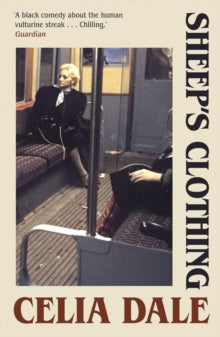Sheep's Clothing — Celia Dale
Sheep's Clothing — Celia Dale
SKU:9781914198601
Couldn't load pickup availability
It was a livelihood which comprised skill, nerve, an understanding and manipulation of human nature, and risk. The risk made Grace Bradby’s cold blood run warmer and faster.
Grace meets Janice in Holloway Prison. Once both women are released, Janice quickly becomes accomplice to a scheme of Grace’s devising: posing as representatives of the Social Services Agency, the duo begin visiting elderly people, falsely promising them increased pensions.
The scheme proves watertight, and the women frequent betting shops, libraries, bingo halls, supermarkets, the post office (on pension days) and park benches (in fine weather), marking out their next target.
What ensues is a sinister tale of greed and misplaced trust, further complicated by a romantic entanglement gone awry.
‘Dale . . . writes with a light touch and a sly humour in the book’s final twist.’ Observer
‘A modern look on women and London . . . Dale is firmly one of my favourite writers.’ Sheena Patel
‘Remarkably and exhilaratingly cruel.’ Backlisted podcast
‘Unsettling, mundane and right on-trend.’ Arts Desk
‘With Shirley Jackson-style sinister vibes, this had me completely hooked.’ Prima
‘There are surprises for all involved in this dark and keenly observed tale.’ Red
‘Celia Dale has created an established corner in tales of domestic terror.’ Daily Telegraph
‘Queen of the eerie, Celia Dale takes you on an unforgettable tale.’ Stylist
‘Celia Dale is past mistress of the bizarre truth behind normal façades.’ New Statesman
‘It is bleak, masterly — and occasionally beautiful.’ The Times
‘Celia Dale’s writing is quiet, clever, subtle – and terrifying. I can’t think of anyone whose stories of suspense I appreciate more.’ Ruth Rendell
‘A black comedy about the human vulturine streak . . . Dale’s subtle ear, sharp eye and awareness that commonplace greed has its own chilling menace enable her to strike a note all too rare on the crime shelf.’ Guardian
‘Celia Dale makes it matter as always with her keen eye and ear and unfailing empathy for the drab, the lonely and the quotidian.’ Sunday Times
Share


